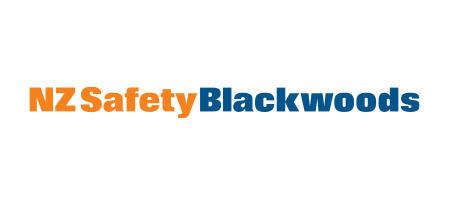
NZ Safety Blackwoods integrates forced labour mitigation practices in Malaysian supply chain

While there is no legislative requirement in New Zealand to report on Modern Slavery (MS) risks, New Zealand Safety Blackwoods (NZSB) is committed to responsible sourcing including identifying MS risks in its operations and supply chain and mitigating against those risks.
NZSB, with support from its sister company Blackwoods, identified areas in its operations and supply chain where the risk of modern slavery was highest. The level of risk was assessed by looking at where operations or suppliers are located, risks associated with materials used in production of goods supplied, and by monitoring international legislation, standards, and trade policies.
Malaysia was identified as a region with particular risk of:
- Excessive payment by foreign workers of recruitment fees to third-party agencies or suppliers
- Fear of retaliation if migrant workers are open about the fees they have paid
- Penalties and unwarranted deductions of wages
- Unsafe or unhygienic dormitories, canteen and living quarters
- Workers identification documents such as visa or passport withheld
To address supply chain risk in Malaysia, NZSB introduced additional human rights due diligence framework* measures for new and existing supply partners in Malaysia, including:
- Foreign migrant worker assessments
- Worker interviews
- Independently operated migrant worker hotline
- Remediation protocols
NZSB remediation protocol provides that the business intends to work collaboratively with supply partners to remediate instances of modern slavery detected by its human rights due diligence framework. The remediation protocol focuses on supporting the affected workers and guiding supplier partners on what they can do to resolve occurrences of modern slavery.
For example, if a foreign migrant worker assessment detected evidence that workers were paying excessive recruitment fees, the steps to remediate those payments by workers would include:
- Investigating the recruitment fees and costs paid by workers
- Identifying eligibility for repayment
- Calculating the repayment amount
- Establishing a timeline for repayment
- Engaging and communicating with migrant and local workers
- Verifying payment
NZSB human rights due diligence framework in action
NZSB partnered with an ethical consultancy firm which conducted a migrant worker assessment and personalised conversations with foreign migrant workers at a Malaysian supplier in late 2021. Through that process, NZSB identified evidence of excessive overtime hours, unauthorised deductions from workers’ salaries, excess payment of recruitment fees, identity documents withheld, and workers being required to pay a penalty if they did not complete the full term of their employment contract.
Over several months NZSB, with assistance from the ethical consultancy firm, attempted to support the supplier to remediate the concerns raised and improve the wellbeing of the workers at the factory. Through that engagement, the supplier implemented a number of remediation measures at its factory. There were some important long-term remediation measures which the supplier was not prepared to implement. Consequently, NZSB’s ended its relationship with the supplier.
NZSB has taken learnings from this experience and modified its approach to Malaysian-based suppliers to support migrant workers and mitigate the risk of forced labour. This includes:
- Conducting foreign migrant workers assessments for all new and existing suppliers
- Reviewing suppliers against the US government’s Withhold Release Orders (WRO) and Findings List
- Implementing forced labour learning modules and capacity building for our internal team and suppliers
- Recommending suppliers engage with the Responsible Glove Alliance where producing glove-based products
Collaboration
NZSB works collaboratively with non-government organisations and participates in industry initiatives with the purpose of reducing modern slavery risks.
NZSB continues to support the establishment of a Modern Slavery Act in New Zealand. In March 2021 NZSB signed a joint letter with over 80 New Zealand companies encouraging the New Zealand government to instigate an inquiry into a potential New Zealand Modern Slavery Act. This was done through Collaborative Advantage, a platform for New Zealand ethical and sustainable sourcing practitioners to discuss and share best practice approach to modern slavery and ethical sourcing.
NZSB’s participation in Collaborative Advantage enables it to work with other companies and the NZ government on difficult human rights issues including modern slavery that cannot be solved by individual companies working alone.
*Human Rights Due Diligence Framework aligns to the definition within the United Nations Guiding Principles on Business and Human Rights Pillar II The corporate responsibility to respect human rights – Operational Principles.
17. In order to identify, prevent, mitigate and account for how they address their adverse human rights impacts, business enterprises should carry out human rights due diligence. The process should include assessing actual and potential human rights impacts, integrating and acting upon the findings, tracking responses, and communicating how impacts are addressed. Human rights due diligence:
- Should cover adverse human rights impacts that the business enterprise may cause or contribute to through its own activities, or which may be directly linked to its operations, products or services by its business relationships.
- Will vary in complexity with the size of the business enterprise, the risk of severe human rights impacts, and the nature and context of its operations.
- Should be ongoing, recognizing that the human rights risks may change over time as the business enterprise’s operations and operating context evolve.